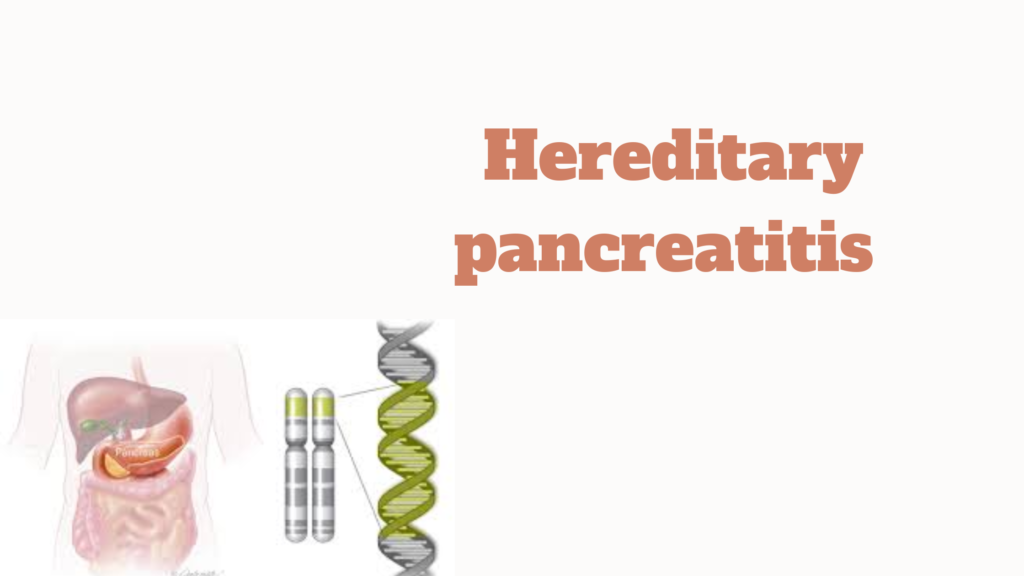Hereditary pancreatitis (HP) is a rare genetic condition characterized by recurrent episodes of acute pancreatitis that can progress to chronic pancreatitis. It is primarily caused by mutations in the PRSS1 gene, which encodes the enzyme cationic trypsinogen. These mutations lead to premature activation of trypsin within the pancreas, resulting in inflammation and damage to pancreatic tissue.
🧬 Genetic Basis
- Primary Cause: The majority of HP cases are due to mutations in the PRSS1 gene, inherited in an autosomal dominant pattern with incomplete penetrance. This means that an individual with a mutated gene has a 50% chance of passing it on, but not everyone who inherits the mutation will develop the disease. (pubmed.ncbi.nlm.nih.gov)
- Other Contributing Genes: Mutations in genes such as SPINK1, CFTR, CTRC, and CPA1 have also been associated with pancreatitis, though they are less common in hereditary cases. (mayocliniclabs.com)
🩺 Clinical Features
- Early Onset: Symptoms typically begin in late childhood, often before age 10. (medlineplus.gov)
- Recurrent Acute Pancreatitis: Frequent episodes characterized by abdominal pain, nausea, vomiting, and elevated pancreatic enzymes.
- Progression to Chronic Pancreatitis: With repeated episodes, individuals may develop chronic pancreatitis, leading to:
- Persistent abdominal pain
- Pancreatic calcifications(medlineplus.gov)
- Pancreatic ductal abnormalities
- Exocrine pancreatic insufficiency (leading to maldigestion)(orpha.net)
- Endocrine pancreatic insufficiency (leading to diabetes mellitus type 3c) (orpha.net)
- Increased Cancer Risk: Individuals with HP have an elevated risk of developing pancreatic cancer, particularly after age 50. The cumulative risk can be as high as 53.5% by age 75. (pubmed.ncbi.nlm.nih.gov)
🧪 Diagnosis
- Genetic Testing: Identification of mutations in the PRSS1 gene confirms the diagnosis. (genomicseducation.hee.nhs.uk)
- Family History: A history of pancreatitis in multiple family members supports the diagnosis.
- Imaging Studies: Techniques like abdominal ultrasound, CT scan, or MRI may reveal pancreatic abnormalities such as calcifications or ductal changes.
💊 Management
- Lifestyle Modifications: Avoidance of alcohol and smoking is crucial, as these factors can exacerbate the condition.
- Pain Management: Analgesics may be prescribed to manage chronic pain.
- Nutritional Support: Pancreatic enzyme replacement therapy (PERT) and dietary adjustments help address maldigestion.
- Diabetes Management: Insulin therapy may be required for those who develop diabetes.
- Surgical Interventions: In cases of complications like pseudocysts or ductal obstructions, procedures such as endoscopic retrograde cholangiopancreatography (ERCP) or even pancreatectomy may be considered. (muschealth.org)
- Cancer Surveillance: Regular monitoring for pancreatic cancer is recommended due to the increased risk.
🧭 Prognosis
With appropriate management, individuals with hereditary pancreatitis can lead relatively normal lives. However, they require lifelong monitoring for complications, including diabetes and pancreatic cancer.
